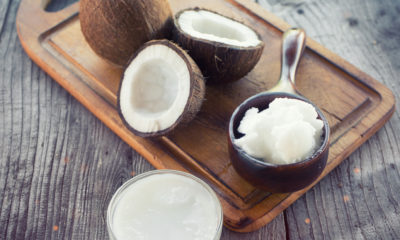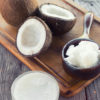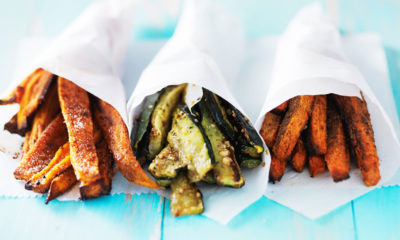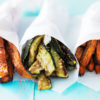Nutrition
Why You Actually SHOULD Be Drinking Your Veggies!
Juicing… the key to true health or just another diet fad? Well the truth is, neither of those statements is 100% correct. Juicing has become a lot more popular over the years; marketing research showed that from 2011 to 2012, the sale of juicers increased by 71%! Analysts are also forecasting that the global juicer market will grow at a CAGR of 8% through the 2019 to 2023 period. It makes sense that everyone is excited to try juicing because it does have a lot of health benefits, but it also shouldn’t be your only source of nutrition.
What is juicing?
Exactly what it sounds like… juicing is extracting the juice out of fruits and vegetables, creating a liquid that contains the vitamins, minerals, and phytonutrients (plant chemicals) that are found in whole food.
What’s so great about it?
Juicing is a fast and easy way to increase the number of vitamins and minerals in your diet. On average, only about one third of Americans get the recommended daily requirement of fruits and vegetables; juicing is a great way to squeeze (literally!) more fruits and vegetables into your diet, supplying your body with tons of vitamins and minerals! Dark, leafy, green vegetables (that not many of us enjoy) are packed with carotene, vitamin C, and vitamin E, which can all help prevent certain types of cancer. Kale juice and citrus juices have been shown to help fight heart disease while carrot juice fights harmful free radicals that attack our cells. Vegetables are full of prebiotics which help support digestion; incorporating foods into your diet that are rich in prebiotics, like leeks and bananas, can increase your gut bacteria dramatically. While we may not like to eat our vegetables, they are easy to hide in a juice. By mixing a variety of fruits and veggies together, you create a delicious drink that is full of health benefits!
What’s the catch?
One downside to juicing is that you are stripping the fruits and vegetables of their fiber, which is important for bowel regularity, lowering cholesterol, stabilizing blood sugars, and helping us feel full after we eat. While juice contains a lot of vitamins and minerals, it also contains all of the sugar from the whole food. It’s easy for the calories and sugar to add up when we are adding three different fruits to one juice. This can lead to high blood sugar and unwanted weight gain. It’s also important to drink fresh juice within 1-2 days of making it because it is not pasteurized. Bacteria grow rapidly in this environment and drinking old juice can lead to overgrowth of gut bacteria and infections. Juicing can also be expensive. Buying premade juice at the store can cost upwards of $6 per 16 ounce bottle and investing in your own juicer can range in cost from $50-$400. There are ways to make juice without buying a juicer, however those can be more time-consuming.
Should I do it?
Well, that really all depends on you and what fits with your lifestyle. If you are someone who doesn’t enjoy the taste of certain fruits and vegetables, juicing can be an easy way to sneak in an extra serving or two. You are also giving your body a big dose of important vitamins and minerals. While incorporating juice into your diet weekly or even daily is not a bad thing, it can be dangerous. Going on a juice fast means you are depriving your body of important sources of protein and fiber that are found in whole foods, and this can lead to many side effects. Remember, it’s still important to get a variety of whole foods in your diet everyday so use juicing as a way to supplement your nutritional needs not replace them.






















